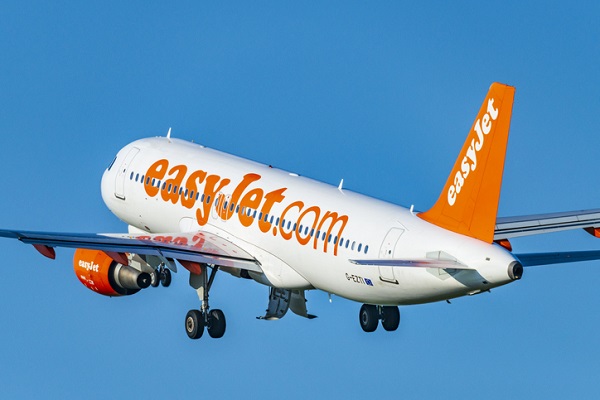ii view: easyJet flags annual loss of over £1.1 billion
Losses marginally better than expected, with bookings up and trading improving. We assess prospects.
12th October 2021 11:26
by Keith Bowman from interactive investor
Losses marginally better than expected, with bookings up and trading improving. We assess prospects.

Full-year trading update to 30 September
- Net debt reduced to £0.9 billion from £2 billion
- Unrestricted access to £4.4 billion of liquidity
Guidance:
- Expects to report a headline loss before tax in the range of £1,14 billion and £1.18 billion
- Expects to fly up to 70% of FY19 planned capacity for Q1 FY22
- No financial guidance for the 2022 financial year
Chief executive Johan Lundgren said:
"It is clear recovery is underway. Business travel is returning to easyJet with corporates and SMEs attracted by our value, network and approach to sustainability. We have seen city breaks beginning to return alongside growing demand for leisure travel from customers looking for flights and holidays to popular winter sun destinations including Egypt and Turkey. October half term bookings have been strong, particularly to the Canary Islands where we have increased our capacity to c.140% of FY19 levels.
"Having successfully completed our rights issue and strengthened the balance sheet, we will take advantage of strategic investment and growth opportunities to deliver strong shareholder value."
ii round-up:
Low-cost airline easyJet (LSE:EZJ) continues to report a steady recovery in the wake of the global pandemic. Fourth-quarter losses have more than halved year-over-year, with a potential full-year loss of £1.14 billion, slightly better than a consensus analyst estimate of £1.18 billion.
First-half bookings are double those of the same time last year, with planned first quarter capacity of 70% of 2019 levels up from the 58% operated during the fourth quarter just finished.
easyJet shares are down 3% in UK trading, having gained by close to 50% since pandemic induced market lows back in March 2020. Shares for long-haul operator and owner of British Airways, International Consolidated Airlines Group (LSE:IAG), are up by almost a third over that time.
A successful £1.2 billion shareholder fundraising has reduced net debt to £0.9 billion from £2 billion as of the prior third quarter, while liquidity (or access to cash) now stands at £4.4 billion from a previous third-quarter £2.9 billion.
Full-year results are scheduled for 30 November 2021.
ii view:
Launched in 1995 and floated on the London Stock Exchange in 2000, easyJet is a short-haul European airline operating a fleet of Airbus aircraft. Measures taken by the Luton headquartered airline to battle the pandemic include cutting staff numbers by around a third and selling and leasing back assets such as planes and buildings. Its recent £1.2 billion shareholder fundraising adds to the more than £5.5 billion raised since the start of the Covid-19 crisis.
For investors, the degree of outlook uncertainty still leaves management unable to offer full-year 2022 financial guidance. Despite some hedging, fuel costs are on the rise as energy costs more generally have risen, while rivals aren't standing still as aircraft fleets are expanded.
On the upside, positive operating cash generation during this latest quarter is a significant step towards recovery, and a strengthened balance sheet now adds to longer term confidence in the airline. Many of the cost savings achieved under the pandemic will now be carried forward, and a previous takeover approach should also not be forgotten. In all, and with trading improving and the valuation remaining at a discount to peers, the balance of risk/reward looks to be shifting in favour of the latter.
Positives:
- Achieve £510 million in cost savings in the 2021 financial year
- Discounted valuation
Negatives:
- Ongoing pandemic uncertainty
- Factors outside of management’s control like the weather can hinder performance
The average rating of stock market analysts:
Buy
These articles are provided for information purposes only. Occasionally, an opinion about whether to buy or sell a specific investment may be provided by third parties. The content is not intended to be a personal recommendation to buy or sell any financial instrument or product, or to adopt any investment strategy as it is not provided based on an assessment of your investing knowledge and experience, your financial situation or your investment objectives. The value of your investments, and the income derived from them, may go down as well as up. You may not get back all the money that you invest. The investments referred to in this article may not be suitable for all investors, and if in doubt, an investor should seek advice from a qualified investment adviser.
Full performance can be found on the company or index summary page on the interactive investor website. Simply click on the company's or index name highlighted in the article.